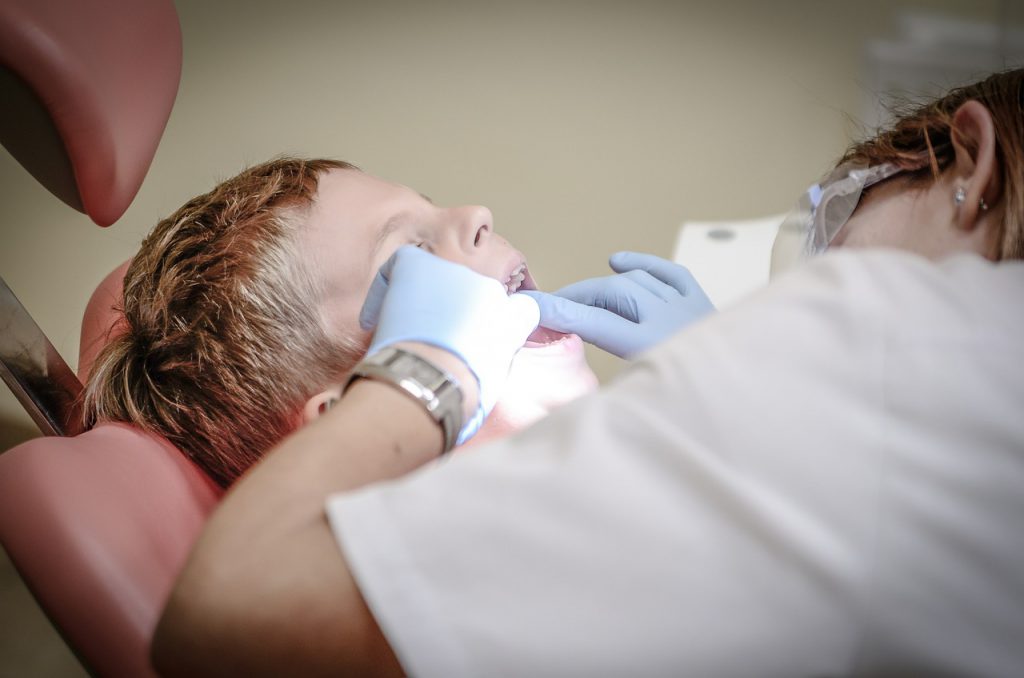A beautiful smile can reveal much more than just joy and satisfaction over how one looks. It is also an indication of health. That’s because dental cavities, crooked teeth, bad breath, missing teeth and even cancer of the mouth are common problems among many Brazilians and can cause difficulty chewing, speaking, breathing, and smiling, in addition to poor digestion, facial pain, headaches and neck pain.
The good news is that prevention is the best way to avoid all this. For this, simple care with mouth and teeth hygiene is necessary. Taking care of teeth to prevent problems is the easiest, cheapest and most painless way to ensure a healthy mouth.

Those who think that such basic care should start only after the first teeth appear are wrong. Babies should have their mouth cleaned even before they have teeth. Soft materials like gauze or cloth diapers, moistened with clean water, should always be used. In this phase, breastfeeding also plays a very important role in buccal health. Breastfeeding promotes the development of the muscles of the tongue, cheeks and bones of the mouth and face, which together determine the best position of the baby’s future teeth.

Thus, it is clear that buccal health depends on care and habits acquired very early and passed on from parents to children, something that does not always occur. For Dr. Francisco Frederico Neto, a pediatrician who graduated from the University of São Paulo (USP), in addition to the lack of habit and guidance related to dental care, there are other mistakes that parents often make that can damage children’s dental health. “The first is to think that baby teeth are not important, since they will be replaced by permanent teeth. The second is not having any notion of what adequate food means. And the third is the habit of eating lots of candy and drinking sweet drinks, such as chocolate or thickened milk without brushing one’s teeth before going to bed,” he says.
Data from the National Health Survey released by the Brazilian Institute of Geography and Statistics (IBGE) in 2013, indicated that only 44% of children (0 to 17 years of age) in the country had been to the dentist in the 12 months prior to the survey date. While it is recommended that dental checkups take place every six months, starting at two or three years of age. In the case of children, in addition to the low number of visits, there is another problem usually associated with the dentist: fear that can last a lifetime. “It would be ideal for children to be treated by odontopediatric dentists, who have a special way of gradually gaining a child’s trust. When things start as they should, many traumas can be avoided,” says Dr. Francisco, science advisor and master teacher at the Criança é Vida (Child is Life) Institute since 1996.

Establishing habits
Concerned with children’s integral health and the role played by adults in their healthy development, the Criança é Vida (Child is Life) Institute also provides certification courses focused on the promotion of mouth and teeth health. The Buccal Health Certification Unit of the Criança é Vida Adultos (Child is Life Adults) highlights the importance of the teeth and mouth, and emphasizes the essential role of the family in such care. In a fun way, through posters and activities, the Institute clears up doubts that are usually related to the theme – like the myth that chewing gum can eliminate bad breath or the lack of awareness that dental cavities, like other diseases, can also be transmitted from one person to another.
The “Quá, quá, rá, quá, quá, do meu dente vou cuidar” (“Quá, quá, rá, quá, quá, I’ll take care of my teeth”) Certification Unit of the Criança é Vida Crianças (Child is Life Children) project translates the key hygiene concepts that are required to maintain buccal health into appropriate language for the 3-to-4-year age group. Modelling with clay, making collages or drawing to the sound of the music “Dente por dente” of a Criança é Vida (Child is Life) Institute CD, boys and girls learn how to make small changes in habits and become agents of change of their own reality. The buccal health certification units have been a part of the projects of the Criança é Vida (Child is Life) Institute since its start in 1996, and in 2016 alone, more than 12,000 children and adults benefited from the content.
The frequency of cavities in Brazil has been decreasing thanks to prevention, protection, education and health promotion measures. Data from the Buccal Health National Survey (SB Brasil 2010) indicate a 26% decrease in the number of dental cavities in 12-year-old children since 2003. In the 15-to-19-year-old age group the decrease was even greater (30%). In addition, the need for a partial prosthesis (replacing one or more missing teeth) among adolescents fell by 50%.

Thus, good dental care is a learning process that must start very early and last a lifetime. Children’s early loss of baby teeth increases the likelihood of having permanent teeth in an incorrect position. In addition to impacts on physical health, such as difficulty cleaning and an increased risk of dental cavities, appearance also is impaired and this can affect the emotional health of children and adolescents. Such cases can result in low self-esteem, isolation and even depression. In addition, treatment of serious buccal health problems is usually expensive. Consequently, prevention is still the best medicine.
Where to seek help
Medical clinics, state and municipal schools, dental schools, unions, and non-governmental and charitable organizations offer free treatment. Find out what’s available in your city.